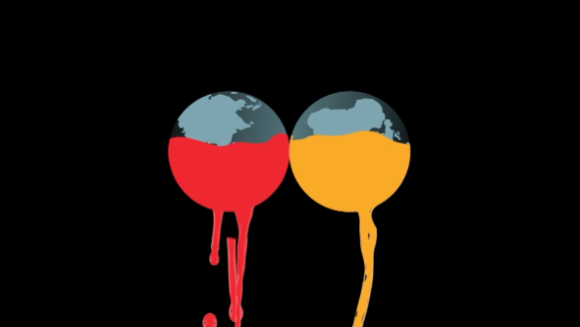On Saturday evening, what appeared to be a New York Times op-ed piece by Bill Keller supporting WikiLeaks emerged on twitter. For WL supporters, this was too good to be true, as someone who had shown much animosity toward WikiLeaks appeared to be speaking in their defense. This turned out to be a well crafted hoax. The stunning prank was believed by almost everyone as the only difference was the URL. The article borrowed words from Keller's emails and mimicked New York Times' home page. It fooled journalists and embarrassingly even the Time's tech writer Nick Bilton. It was surreal, as Keller, someone who had come to represent a 'journalism' that bends over for the US government, now appeared to stand behind WikiLeaks. This lasted for hours before it was finally debunked. Later in the day, WikiLeaks released a sequence of tweets that admitted they were involved in the production of this fake Bill Keller op-ed.
Authored by @Nicsha
 If you spend five minutes watching commercial television or flicking through a mainstream magazine, you would think spending money is not only our birthright, but a move that is encouraged and welcomed.
If you spend five minutes watching commercial television or flicking through a mainstream magazine, you would think spending money is not only our birthright, but a move that is encouraged and welcomed.
We can buy almost anything from anywhere. We have the freedom to invest, bank online, and support innumerable charities and organisations across the globe; whether it's helping to protect animals, join the fight against cancer, advocate human rights or even speaking out to save a lake.
Unless of course, you are WikiLeaks.
Most people probably know that from the 7th of December 2010 (just after WikiLeaks began publishing the US diplomatic cables), MasterCard, Visa, Bank of America, PayPal and Western Union decided to stop their customers from making donations to WikiLeaks.
No longer contented with their own business, the major banks have launched a covert mission to invade ours by means of a financial blockade that prevents us from using their products towards causes we support.
What right does a company or foreign Government have to tell me, an Australian citizen, about how to spend my money? And, on what criteria do the bank and credit card companies determine who will be blockaded?
While many may have thought the financial blockade would only last a few weeks,almost eighteen months have passed and donations to WikiLeaks have dropped by 95 per cent, according to their estimates. In July 2011, WikiLeaks lodged a complaint with the European Commission for infringement of the EU Anti Trust Laws. We are still waiting for their decision.
In an interview published this week in Law.Com, general counsel for the Washington DC based nonprofit Center for Democracy & Technology, David Sohn, discusses the protests against SOPA and PIPA, including the January 18 internet blackout action. In general, he disparages the methods proposed in the bills for shutting down sites that are alleged to be copyright infringers, claiming concern over the likelihood that ISPs put into policing roles will take a more risk averse approach in shutting down sites, resulting in a curtailment of freedom of expression. However when he is asked how he would balance the right to free speech on the Internet with the need to curtail online IP theft, his response is:
The portions of the bills that worked were those that took a follow-the-money approach by cutting off the funding support for rogue websites. WikiLeaks provides an instructive example. All of the efforts to make it disappear didn't work, but what did work was the financial blockade that made it impossible for WikiLeaks to fund the bandwidth it needed to run.
Putting aside his misguided claim that WikiLeaks actually ceased operating after the financial blockade was imposed on them in December 2010, his comments do in other ways properly reflect the grim reality. What Sohn is referring to here are the provisions in SOPA / PIPA that prohibit any site accused of piracy from doing business with other services, such as PayPal or any advertising platform. Almost precisely what was done to WikiLeaks having their relationships cut off not only with PayPal, but also with Visa, MasterCard, Bank of America and Western Union - resulting in the loss of 95% of their income from donations - their only income - for the last 15 months.
Theme by Danetsoft and Danang Probo Sayekti inspired by Maksimer